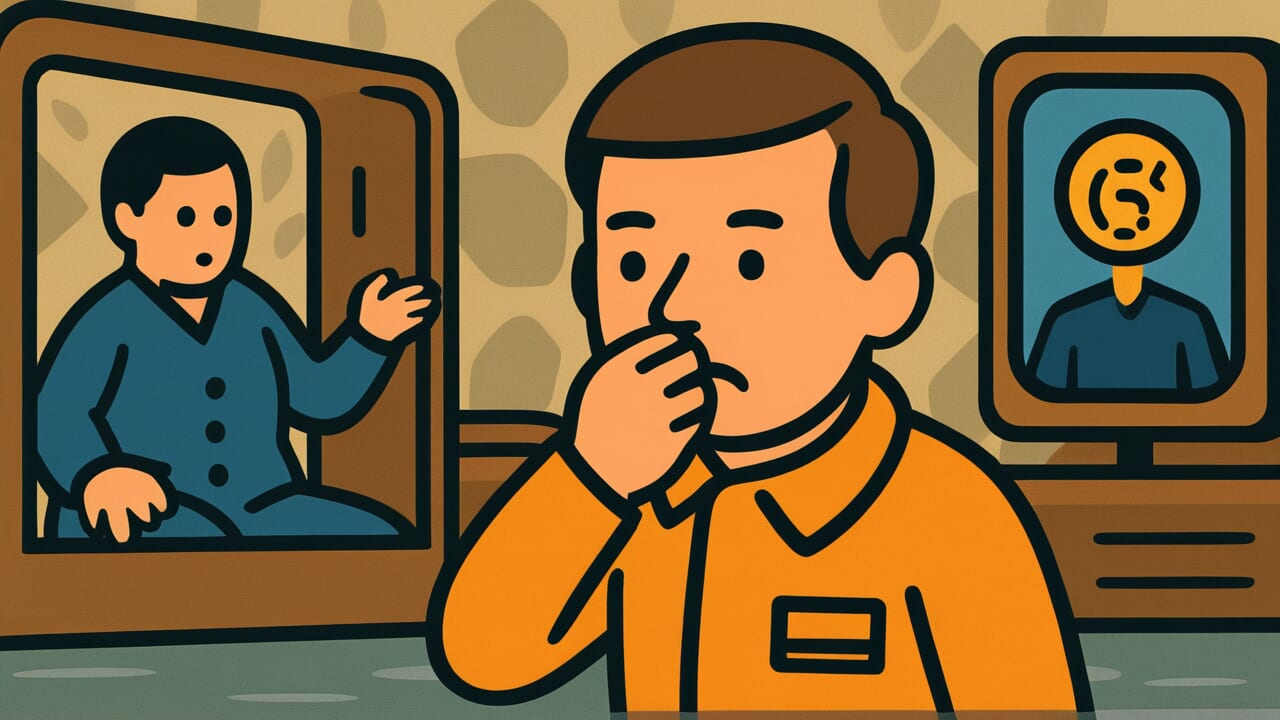How to Read “People suffer from not knowing contentment”
Hito wa taru wo shirazaru ni kurushimu
Meaning of “People suffer from not knowing contentment”
This proverb expresses a fundamental truth about human nature. People cannot feel satisfied with what they have now. They always want more and more.
As a result, they chase endless desires that can never be fulfilled. This robs them of inner peace.
This proverb applies to people who exhaust themselves pursuing material wealth. It also speaks to those who feel dissatisfied by comparing themselves to others. People use it to caution themselves as well.
When the feeling of “I want more” or “It’s still not enough” becomes too strong, it actually pushes happiness further away. The proverb contains this important warning.
In modern society, information overflows everywhere. We constantly have opportunities to compare ourselves with others. This makes the proverb’s message more important than ever.
True happiness doesn’t come from acquiring external things. It begins when we recognize the value of what we already have. This is the profound teaching at the heart of this saying.
Origin and Etymology
This proverb likely comes from ancient Chinese philosophy, especially the teachings of Laozi. The “Tao Te Ching” contains the famous phrase “Those who know contentment are rich.”
This teaching came to Japan and took various forms of expression over time.
The concept of “knowing contentment” also became important in the world of Zen Buddhism. Japanese Zen monks incorporated this philosophy into their daily practice.
They taught a way of life that values spiritual fulfillment over material wealth.
The structure of this proverb uses an interesting negative form. It doesn’t simply say “not knowing satisfaction.” Instead, it says “not knowing that one has enough.”
This precisely captures a human tendency. People actually have plenty, but they fail to realize it.
Confucian scholars and Buddhist teachers in the Edo period repeatedly taught this lesson. The importance of not being controlled by material desires became part of Japanese spirituality.
They emphasized having a heart that appreciates what exists now. This wisdom has transcended time.
Usage Examples
- He keeps changing jobs even when his salary increases. This is exactly what “People suffer from not knowing contentment” means.
- If you keep complaining by comparing yourself to your neighbors, you’ll end up in a state of “People suffer from not knowing contentment.”
Universal Wisdom
Human desire has no end. This fact has been observed throughout history across all cultures. This proverb has been passed down for so long because it perfectly identifies a fundamental human weakness.
What’s fascinating is that it points to the cause of suffering within ourselves, not outside. The insight is remarkably deep: we don’t suffer because we’re poor, but because we don’t know contentment.
In the same situation, one person feels happy while another feels dissatisfied. The difference isn’t in how much they have. It’s in their state of mind.
Humans have an ambition to improve themselves. This drive has advanced civilization. However, when that desire becomes uncontrollable, people get trapped in endless competition. They lose their inner peace.
This proverb presents an eternal challenge humanity must face. It’s about balancing ambition with contentment.
Our ancestors learned from experience that material wealth alone doesn’t make people happy. True richness is a state of mind where you recognize the value of what you have and feel grateful.
This proverb continues to convey that wisdom.
When AI Hears This
Dopamine neurons in the brain don’t calculate “how happy am I now?” Instead, they calculate “how much better is this than expected?” This is called reward prediction error.
For example, if you expect a 30,000 yen raise and get exactly that, dopamine barely releases. It matched your prediction. But if you unexpectedly get 50,000 yen, dopamine floods your system.
The human brain is designed to feel happiness not from absolute wealth, but from exceeding expectations.
Even more interesting is what happens after you get what you want. The brain immediately resets to a new baseline. Someone satisfied with 5 million yen annual income reaches 6 million yen.
After a few months, 6 million becomes normal. Dopamine stops responding. This phenomenon is called hedonic adaptation.
During evolution, this mechanism was advantageous for survival. Individuals who constantly sought more succeeded better at securing food and reproducing than those who stopped when satisfied.
But in modern society, this neural circuit backfires. Even as material wealth increases, the brain keeps demanding “more.” The dopamine system activates not from achievement itself, but from anticipation of achievement.
People feel happier while chasing goals than after reaching them. The moment you reach a goal, your brain starts searching for the next one.
The suffering from not knowing contentment is actually built into the brain’s reward system itself.
Lessons for Today
This proverb teaches you that the key to happiness is already in your hands. When you open social media, someone’s glamorous life appears. Your own life might seem dull in comparison.
But that’s an illusion.
What matters is focusing on what you have right now in this moment. A healthy body, trustworthy friends, warm meals, a safe place to sleep.
Things you take for granted actually hold immeasurable value. Developing the ability to notice this is the first step toward true richness.
Of course, having ambition is wonderful. Chasing dreams and aiming for a better future enriches life. But in that process, you don’t need to deny your current self.
You don’t need to dismiss what you already have. Gratitude and ambition never contradict each other.
What you need in life might already be complete. Before feeling something is missing, take another look at the value of what exists now.
That shift in perspective will free you from suffering. It will guide you to true happiness.



Comments